In our pursuit of environmental preservation, we frequently encounter a dilemma. While we require effective heating and cooling systems for comfort, we also have to take into account the environmental ramifications of these technologies.
Enter heat pumps, a technology that promises both comfort and sustainability. In this article, we will delve into the role of heat pumps in environmental impact, exploring their efficiency, benefits, and ways to mitigate emissions.
Together, let’s decipher the true potential of heat pumps in serving our planet.
Key Takeaways
- Heat pumps are an efficient and environmentally friendly way to heat and cool spaces, with the potential to reduce carbon emissions by up to 50% compared to conventional cooling methods.
- Heat pumps offer a significant improvement in efficiency compared to traditional methods, with higher coefficient of performance (COP) values indicating better efficiency.
- While heat pumps may have higher upfront installation costs, long-term energy savings can offset these expenses, and various incentives and rebates are available to reduce the initial investment.
- The choice of refrigerant in heat pump systems is crucial, as low-GWP refrigerants are preferred to minimize environmental impact, and the phase-out of high-GWP refrigerants is necessary to promote sustainability.
The Basics of Heat Pumps’ Refrigeration Cycle
We’ll now explore the basics of a heat pump’s refrigeration cycle. Heat pump technology is an efficient and environmentally friendly way to heat and cool spaces. Understanding the refrigeration process is essential for maximizing the performance of heat pumps.

The cycle starts with the evaporator coil, where the refrigerant absorbs heat from the surrounding air or water. The refrigerant then enters the compressor, which increases its pressure and temperature.
Next, the hot refrigerant flows through the condenser coil, where it releases heat into the air or water. Finally, the refrigerant passes through the expansion valve, which reduces its pressure and temperature, preparing it to repeat the cycle.
Understanding the Environmental Impact of Heat Pump Cooling
Our analysis reveals the significant reduction in greenhouse gas emissions associated with heat pump cooling. By utilizing carbon neutrality and renewable energy sources, heat pumps offer a sustainable solution for cooling needs.
Here are three key points to help you understand the environmental impact of heat pump cooling:

-
Energy Efficiency: Heat pumps use significantly less energy compared to traditional cooling systems, resulting in lower greenhouse gas emissions. This energy efficiency is achieved through the transfer of heat rather than the generation of cold air.
-
Reduced Carbon Footprint: Heat pumps have the potential to reduce carbon emissions by up to 50% compared to conventional cooling methods. This reduction is due to their reliance on renewable energy sources such as solar or geothermal energy.
-
Sustainable Cooling: By harnessing renewable energy, heat pumps contribute to a more sustainable future. They align with the goal of reducing dependence on fossil fuels and promote a transition towards cleaner and greener technologies.
Analyzing the Efficiency of Heat Pump Heating and Cooling
Heat pump heating and cooling systems offer a significant improvement in efficiency compared to traditional methods. To analyze the efficiency of these systems, heat pump performance and energy consumption analysis are crucial.
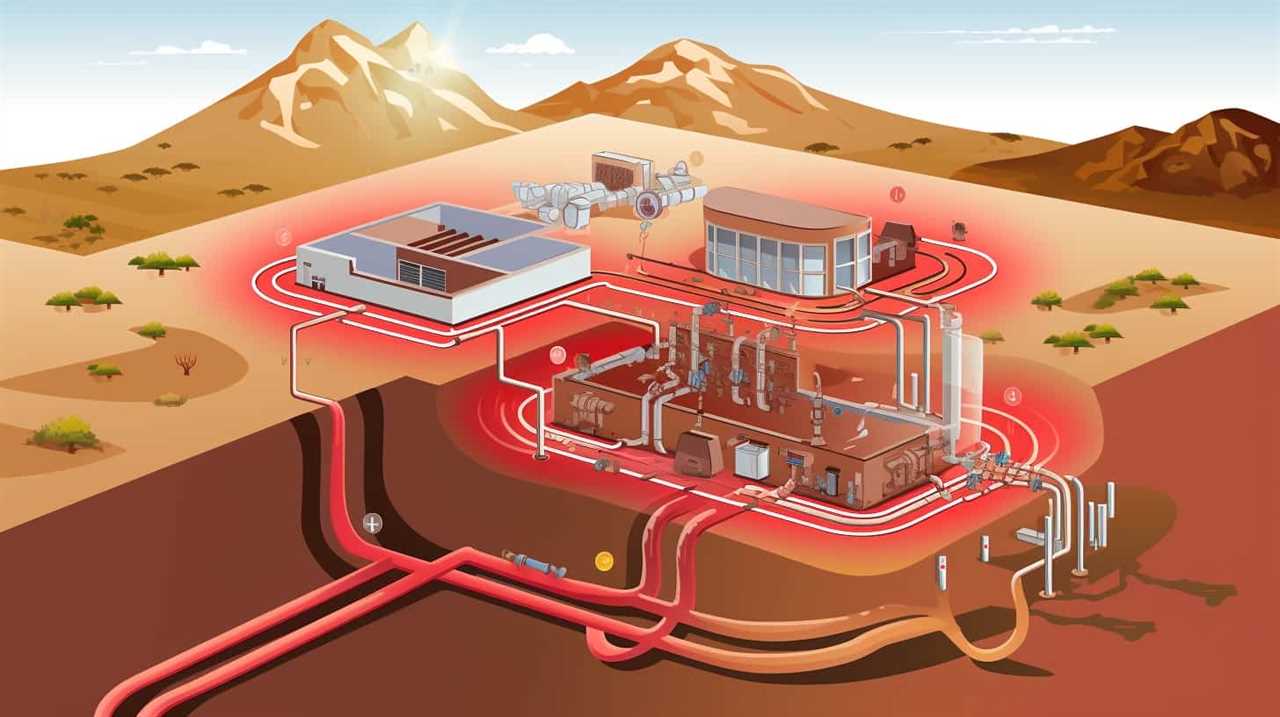
Heat pump performance is typically measured by the coefficient of performance (COP), which is the ratio of heat output to the energy input. A higher COP indicates better efficiency.
Energy consumption analysis involves evaluating the amount of energy consumed by the heat pump system during operation, including electricity usage and any auxiliary energy required.
Evaluating the Environmental Benefits of Heat Pumps
When evaluating the environmental benefits of heat pumps, it’s important to consider their efficiency and compare their carbon footprints to other heating and cooling systems.
By analyzing the efficiency of heat pumps, we can determine how effectively they convert energy into heat or cool air, reducing wasted energy and minimizing environmental impact.

Additionally, comparing the carbon footprints of heat pumps to traditional systems allows us to assess their potential for reducing greenhouse gas emissions and contributing to a more sustainable future.
Heat Pump Efficiency
We can assess the environmental benefits of heat pumps by evaluating their efficiency. Here are three key factors to consider when evaluating heat pump efficiency:
-
Energy Consumption: Heat pumps are known for their energy efficiency compared to traditional heating and cooling systems. They can extract heat from the air or ground, requiring less energy to provide the same level of heating or cooling. This results in lower greenhouse gas emissions and reduced reliance on fossil fuels.
-
Installation Costs: While heat pumps may have higher upfront installation costs compared to traditional systems, their long-term energy savings can offset these expenses. Additionally, there are various incentives and rebates available that can help reduce the initial investment.

-
Environmental Impact: The higher efficiency of heat pumps leads to a significant reduction in carbon emissions, helping combat climate change. By using renewable energy sources, such as solar or wind power, in conjunction with heat pumps, we can further minimize the environmental impact and create a more sustainable future.
Carbon Footprint Comparison?
By comparing carbon footprints, we can evaluate the environmental benefits of heat pumps. Conducting a carbon footprint analysis allows us to quantify the amount of greenhouse gas emissions produced by different heating systems, including heat pumps. This type of assessment is crucial in determining the environmental impact of heat pumps and their potential contribution to reducing carbon emissions.
The results of such analysis provide valuable insights into the effectiveness of heat pumps in mitigating climate change and improving air quality. By comparing the carbon footprints of heat pumps to conventional heating systems, we can identify the superior environmental performance of heat pumps.
This data-driven approach enables us to make informed decisions and prioritize the adoption of heat pumps as a sustainable and efficient heating solution.

Exploring the Role of Refrigerants in Heat Pump Environmental Impact
When it comes to the environmental impact of heat pumps, the choice of refrigerants plays a crucial role. Different refrigerants have varying levels of global warming potential (GWP) and ozone depletion potential (ODP), which directly affect the overall environmental impact of heat pump systems.
Adhering to strict environmental regulations and choosing refrigerants with low GWP and ODP can significantly reduce the negative impact of heat pumps on the environment.
Additionally, exploring alternatives to harmful refrigerants, such as natural refrigerants or low GWP synthetic refrigerants, can further mitigate the environmental impact of heat pump systems.
Refrigerant Choices and Impact
The choice of refrigerants plays a significant role in the environmental impact of heat pumps. When selecting refrigerants, it’s crucial to consider their environmental consequences. Here are three key factors to consider:
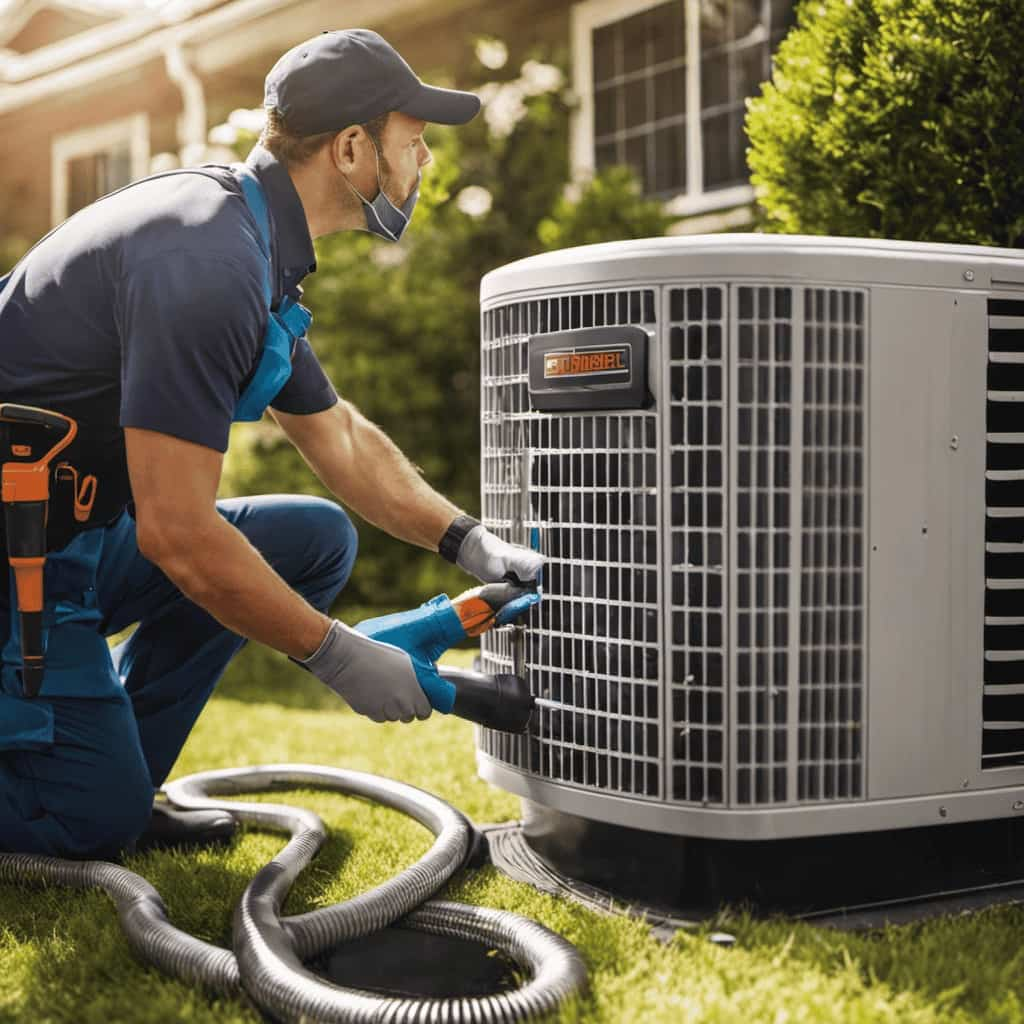
-
Global Warming Potential (GWP): This metric measures the potential of a refrigerant to contribute to global warming over a specific period. Opting for refrigerants with lower GWP values can significantly reduce the heat pump’s overall environmental impact.
-
Ozone Depletion Potential (ODP): Some refrigerants contain chemicals that deplete the Earth’s ozone layer. By choosing refrigerants with low or zero ODP, we can minimize harm to the ozone layer and protect our planet’s delicate balance.
-
Energy Efficiency: The efficiency of heat pumps depends on the refrigerant used. Optimal refrigerants can enhance the heat pump’s performance, resulting in reduced energy consumption and lower environmental impact.
Environmental Regulations and Heat Pumps
Our choice of refrigerants and adherence to environmental regulations have a significant impact on heat pumps’ overall environmental footprint. Environmental regulations play a crucial role in ensuring that heat pumps operate efficiently and sustainably. These regulations focus on two key aspects: environmental impact and energy efficiency.

By setting standards for refrigerants used in heat pumps, regulations aim to minimize harmful emissions and promote the use of environmentally friendly alternatives. Compliance with these regulations is essential for the growth and sustainability of the heat pump market. Adhering to environmental regulations ensures that heat pumps are designed and manufactured to meet strict standards, resulting in reduced environmental impact and improved energy efficiency.
As we explore the role of refrigerants in heat pump environmental impact, it becomes clear that adhering to environmental regulations is crucial for the overall sustainability of heat pump systems. This leads us to the next section, where we’ll discuss alternatives to harmful refrigerants.
Alternatives to Harmful Refrigerants
As we explore the role of refrigerants in heat pump environmental impact, it’s important to consider alternatives to harmful refrigerants that can minimize their negative effects. By adopting these alternatives, we can contribute to reducing ozone depletion and greenhouse gas emissions.
Here are three noteworthy alternatives:

-
Hydrofluoroolefins (HFOs): HFOs are a new generation of refrigerants that have a significantly lower global warming potential compared to traditional refrigerants like hydrochlorofluorocarbons (HCFCs) and hydrofluorocarbons (HFCs). They offer a promising solution for reducing greenhouse gas emissions.
-
Natural refrigerants: Utilizing natural refrigerants such as carbon dioxide (CO2), ammonia (NH3), and hydrocarbons (HCs) can greatly minimize the environmental impact of heat pumps. These refrigerants have zero ozone depletion potential and negligible global warming potential, making them environmentally friendly options.
-
HFC/HFO blends: Blending HFCs with HFOs can provide a transitional solution towards more sustainable refrigerants. These blends offer improved energy efficiency, reduced environmental impact, and comply with regulations aimed at phasing out ozone-depleting substances.
Mitigating Heat Pump Emissions: Best Practices and Technologies
Reducing heat pump emissions requires implementing effective strategies and adopting cutting-edge technologies. To mitigate emissions and promote a more sustainable future, it’s crucial to utilize eco-friendly technologies and best practices.
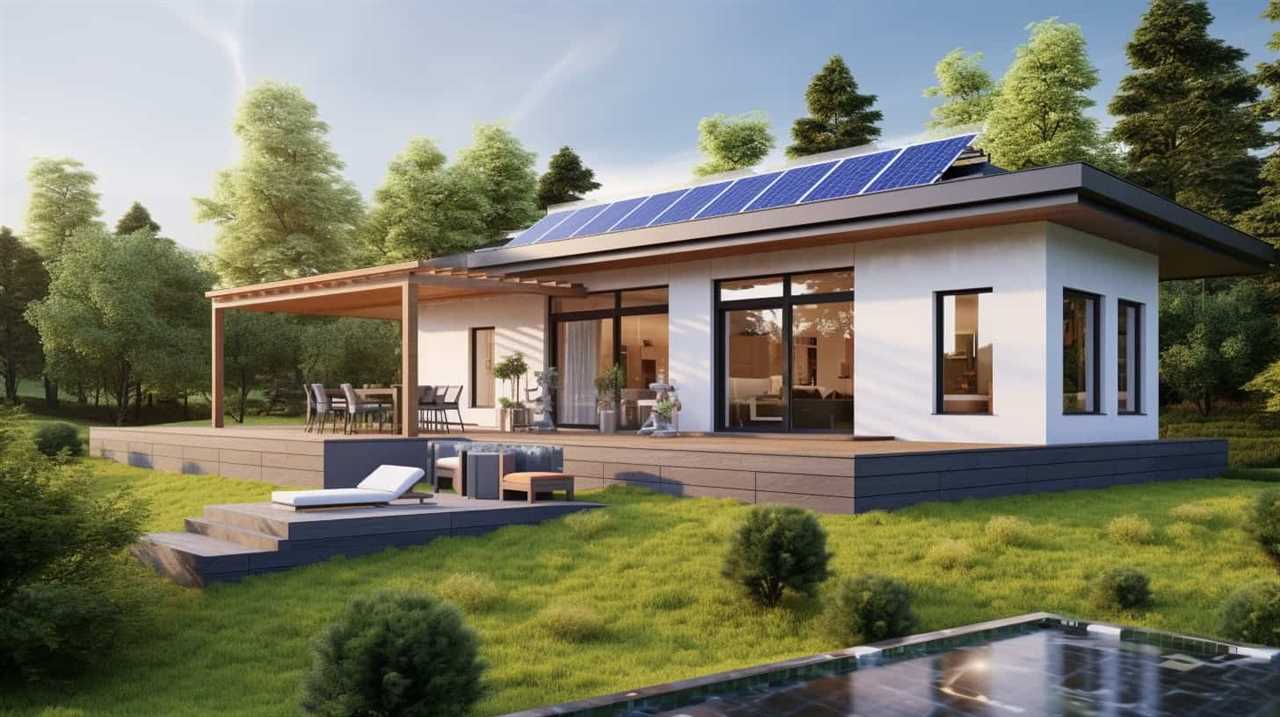
One such practice is the use of refrigerants with low global warming potential (GWP). By choosing refrigerants with lower GWP, we can significantly reduce the environmental impact of heat pumps.
Additionally, improving the energy efficiency of heat pump systems can also help mitigate emissions. This can be achieved through the use of advanced controls, such as variable speed compressors and smart thermostats, which optimize the system’s performance and reduce energy consumption.
By adopting these eco-friendly technologies and implementing best practices, we can minimize heat pump emissions and contribute to a greener and more sustainable environment.
Transitioning into the subsequent section about ‘comparing heat pumps to conventional HVAC systems: environmental considerations’, it’s important to understand the environmental advantages and disadvantages of different heating and cooling systems.
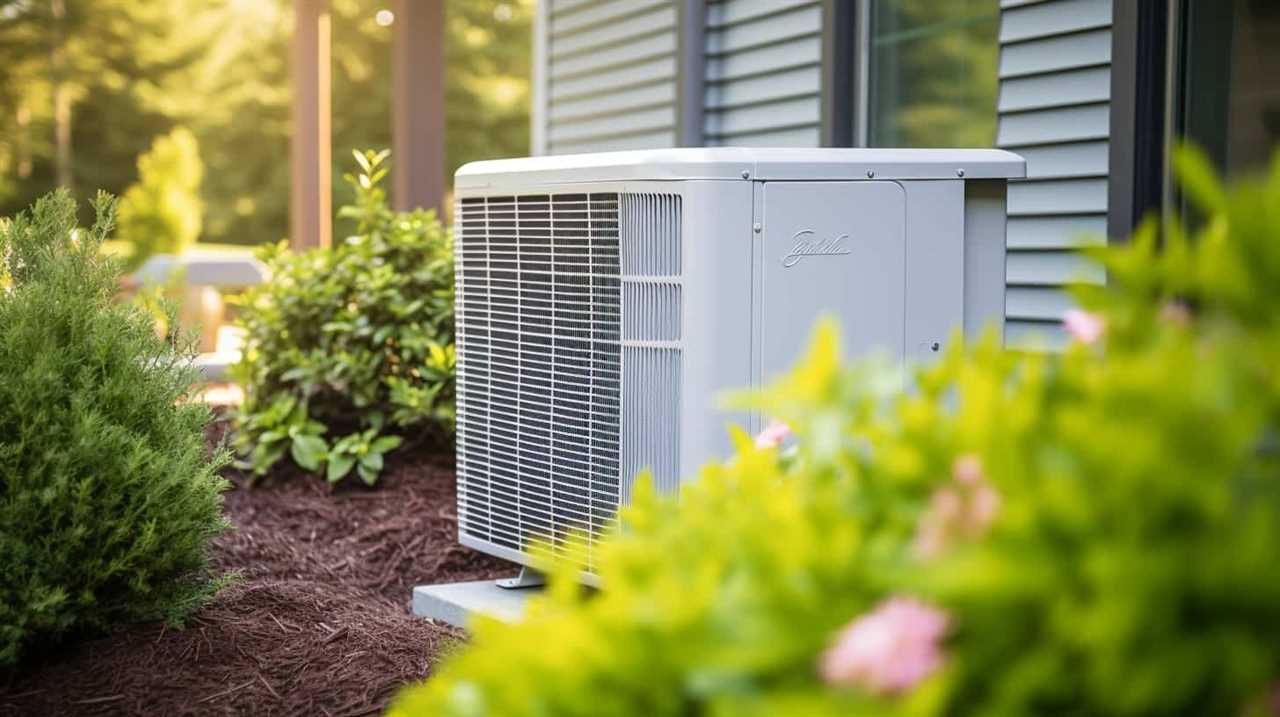
Comparing Heat Pumps to Conventional HVAC Systems: Environmental Considerations
When considering the environmental impact, it’s important to compare heat pumps to conventional HVAC systems. Here are three key environmental considerations:
-
Carbon Emissions:
Heat pumps have significantly lower carbon emissions compared to conventional HVAC systems. This is because heat pumps transfer heat from the environment, reducing the need for burning fossil fuels. By using renewable energy sources, such as solar or geothermal, heat pumps can further decrease carbon emissions. -
Energy Consumption:
Heat pumps are more energy-efficient than conventional HVAC systems. They use electricity to move heat rather than generating it, resulting in lower energy consumption. This not only reduces greenhouse gas emissions but also saves on energy costs. -
Air Quality:
Heat pumps can improve indoor air quality by reducing the need for combustion-based heating. Without burning fuel, heat pumps eliminate the release of harmful pollutants and allergens into the air, promoting healthier living environments.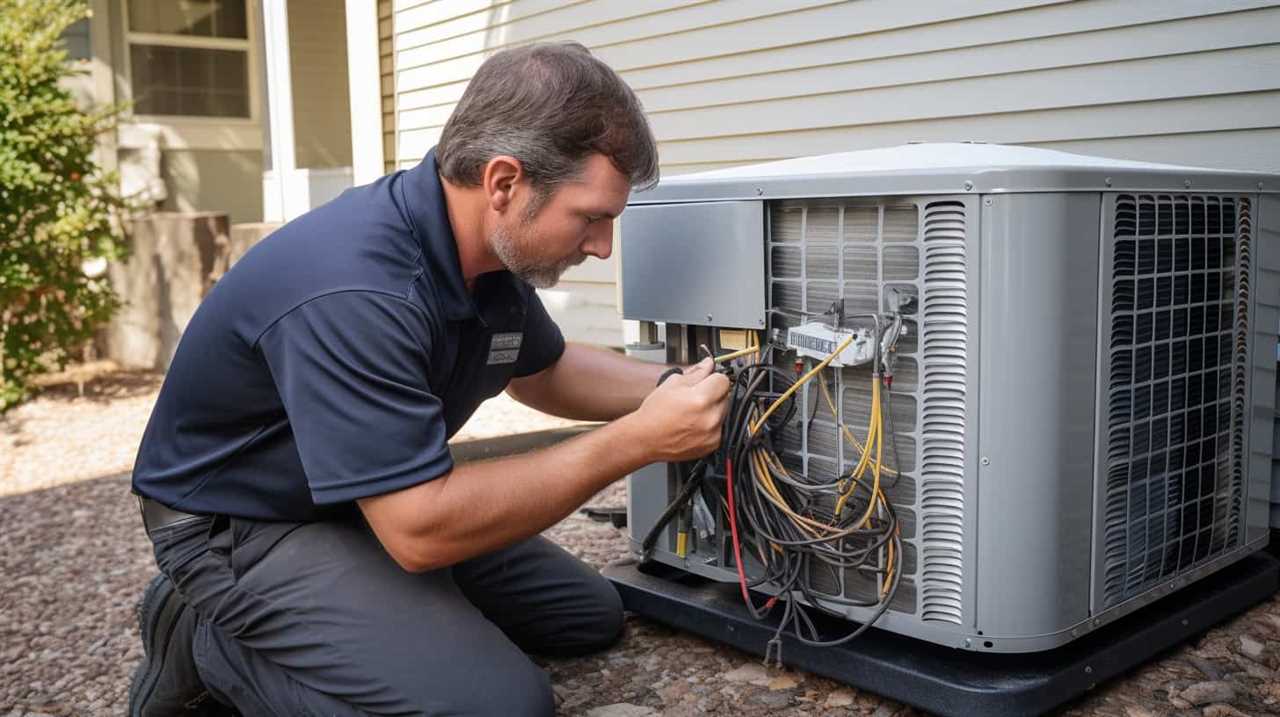
Frequently Asked Questions
What Is the Average Lifespan of a Heat Pump System?
The average lifespan of a heat pump system is typically around 15 to 20 years. Heat pump efficiency and environmental benefits make them a sustainable and cost-effective choice for heating and cooling.
How Does the Cost of Heat Pump Installation Compare to Traditional HVAC Systems?
When comparing the cost of heat pump installation to traditional HVAC systems, it’s important to consider the long-term savings. Heat pumps are more energy efficient, resulting in lower utility bills and a quicker return on investment.
Are Heat Pumps Suitable for All Climates?
Heat pumps can be suitable for all climates, depending on their efficiency and performance. We must consider factors such as temperature ranges, insulation, and regional climate conditions to determine the optimal heat pump system for each location.
Can Heat Pumps Be Used for Both Residential and Commercial Buildings?
Yes, heat pumps can be used for both residential and commercial buildings. They offer numerous benefits, such as reducing carbon emissions and providing efficient heating and cooling solutions for industrial applications.
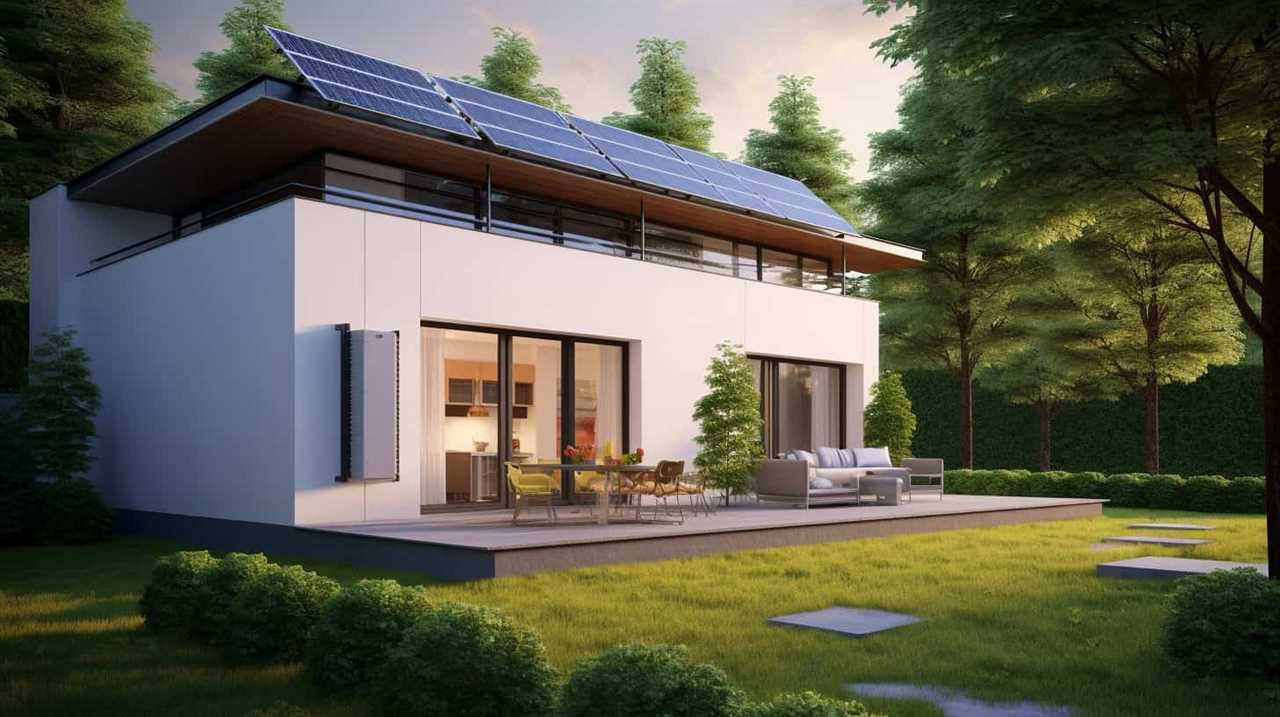
What Is the Maintenance Required for Heat Pump Systems?
Maintenance requirements for heat pump systems include regular filter cleaning/replacement, coil cleaning, and inspection of electrical connections. Proper maintenance ensures optimal energy efficiency and prevents system breakdowns, saving both money and the environment.
Conclusion
In conclusion, heat pumps have a significant role to play in reducing environmental impact.
With an average coefficient of performance (COP) of 3.5, heat pumps are highly efficient in both heating and cooling, resulting in reduced energy consumption and greenhouse gas emissions.
Moreover, by utilizing environmentally-friendly refrigerants and adopting best practices and technologies, heat pump emissions can be further mitigated.
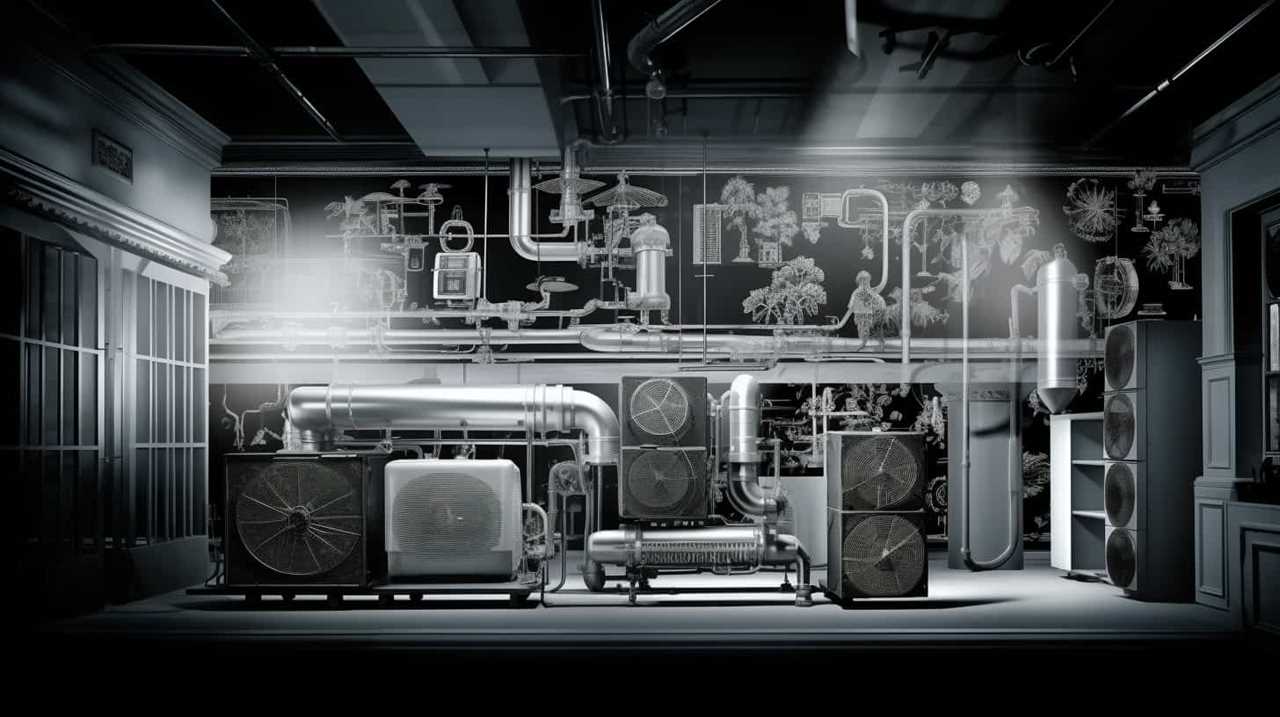
Compared to conventional HVAC systems, heat pumps offer a more sustainable solution for maintaining comfortable indoor temperatures while minimizing environmental harm.









